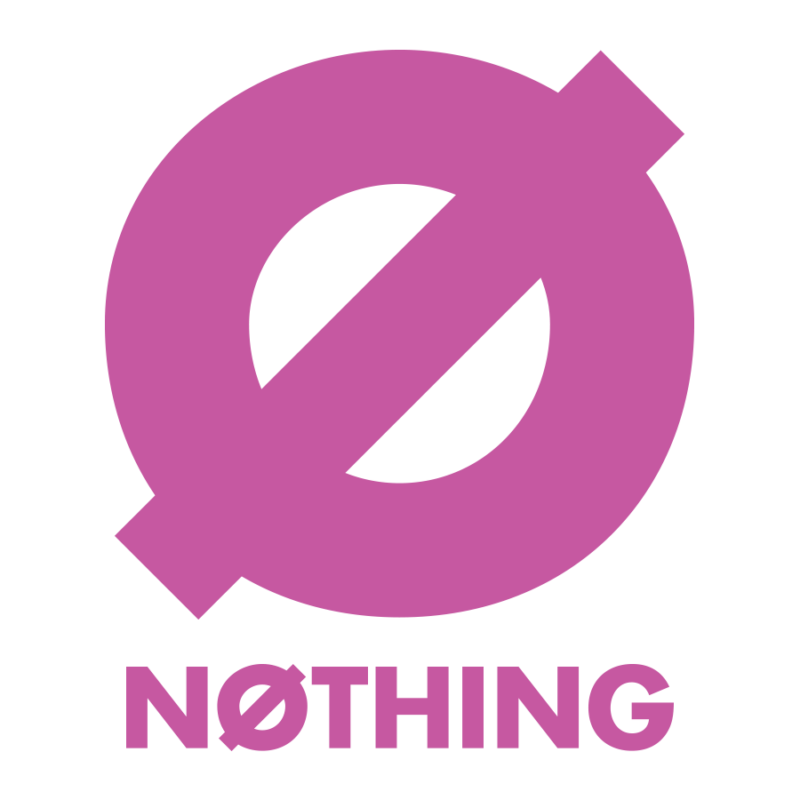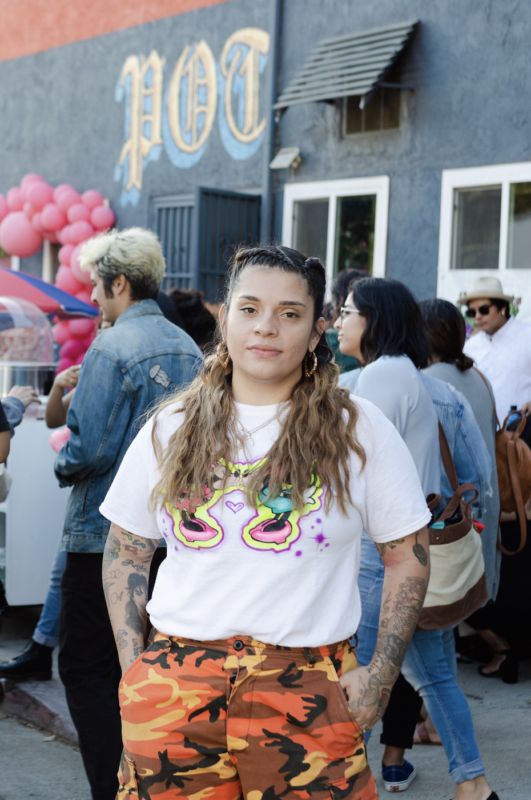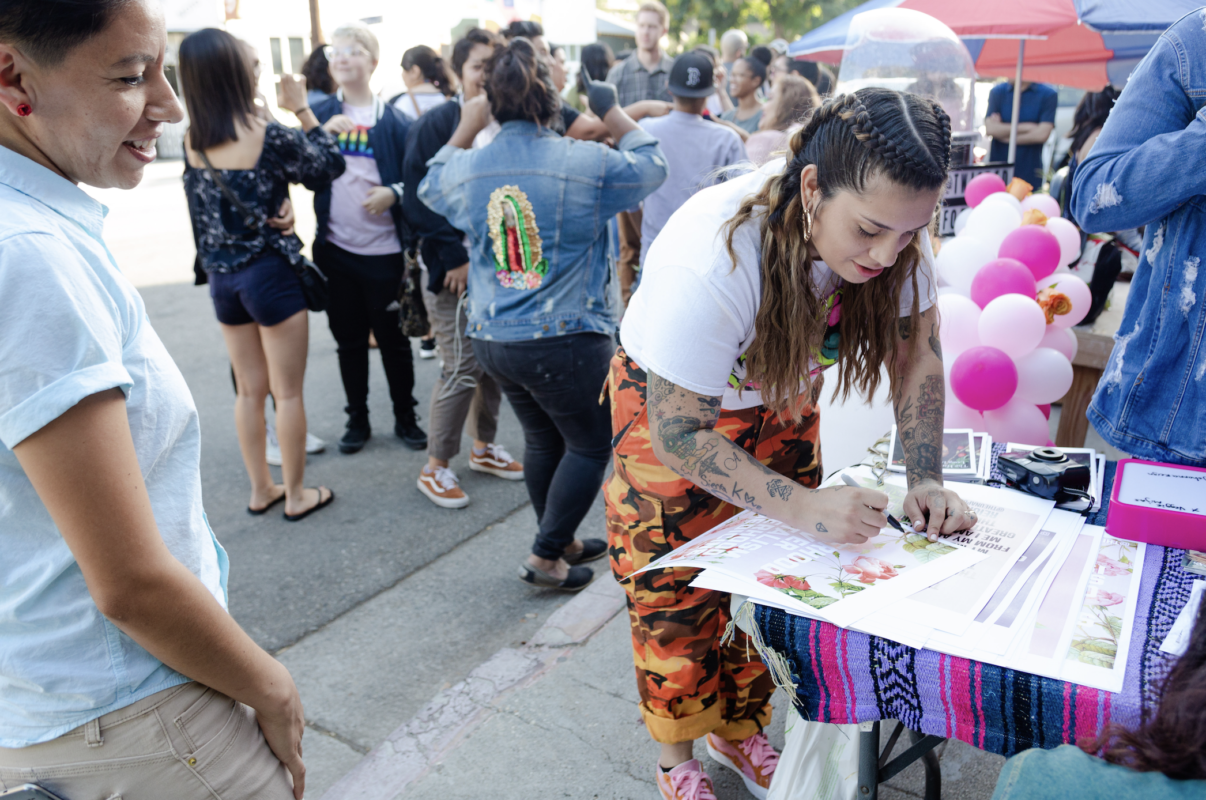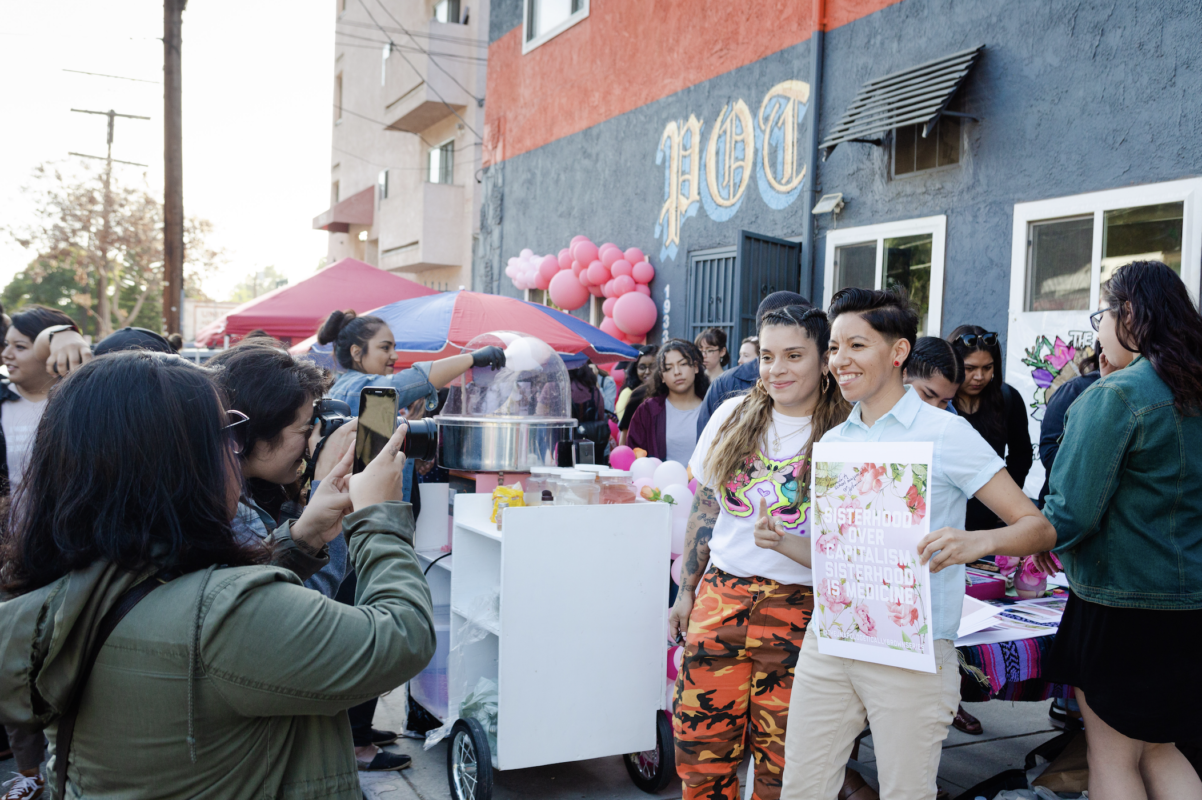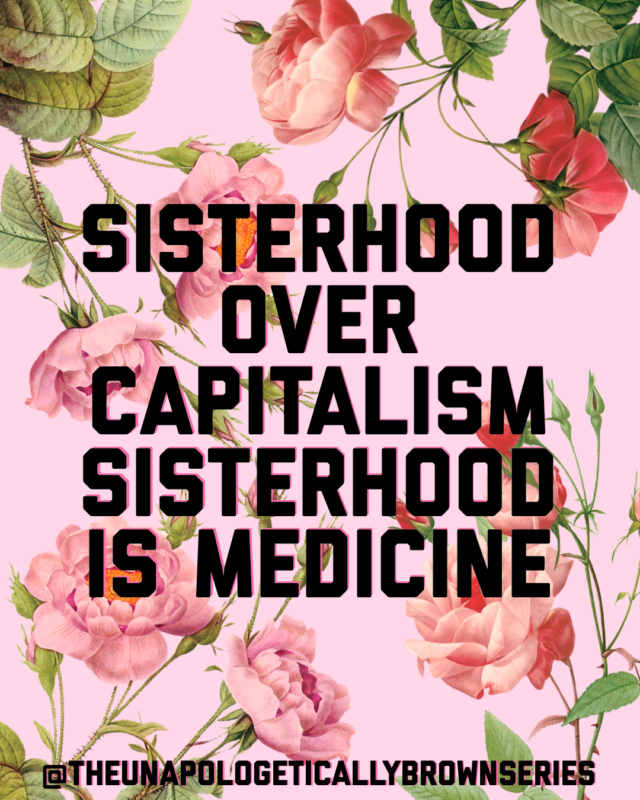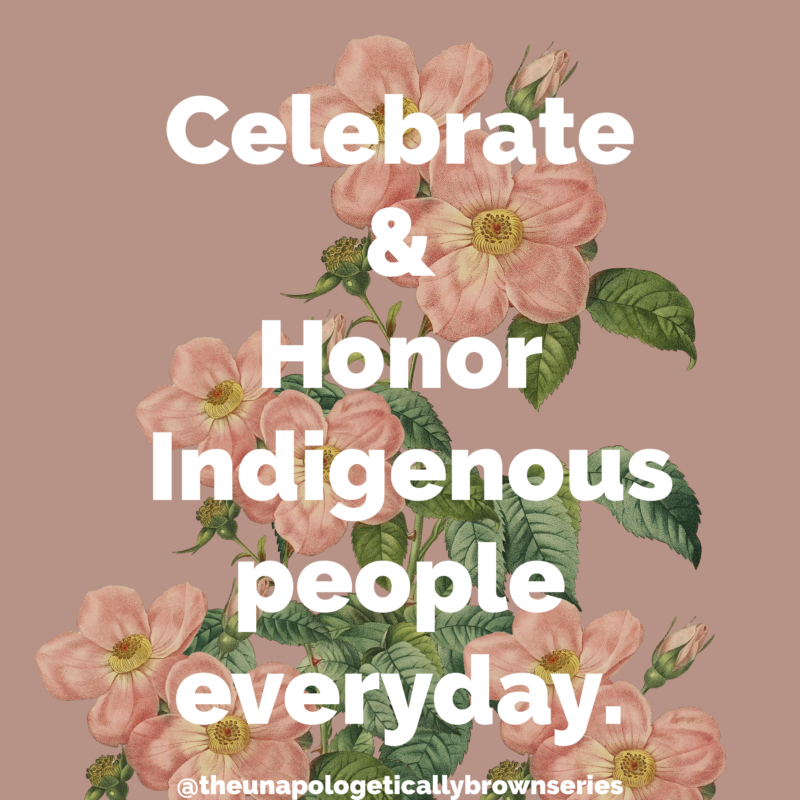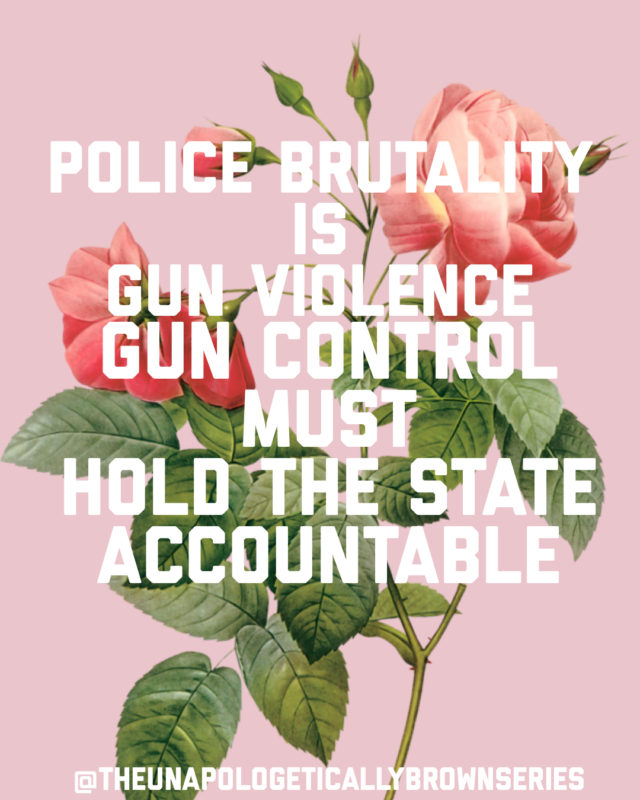Johanna Toruño, womxn of color, fierce advocate for street art, and the creator of The Unapologetically Brown Series gives us some insight during the Brown Mijas Pop Up event, to the series that took on its own life, and what it means for her to advocate for the creators of culture.
Tell me who and what is The Unapologetically Brown Series.
The Unapologetically Brown Series is a body of work, a creation that has its own life now. It started with a Soundcloud project; I was writing poetry at the time and I realized giving people Soundcloud links is not a viable way to share my artwork. I decided to turn literally everything that I was doing in public art. I’m from El Salvador, I grew up in the 90s where we were in the aftermath of the civil war, so we had a lot of public art that was really emotional and political. When I was 15, I tried to start a gay-straight alliance club at my high school but they said ‘no’. They had a hunting club and I ended up making a poster that said something about it being hypocritical to have a hunting club and not a gay-straight alliance club and putting it in the hallway. That obviously invoked a reaction out of people. Two years ago I remembered that putting my work in public has worked for me before — let’s see what happens this time.
What does it mean to reclaim space and why is it important to do so?
We folks of color, are in these spaces at all times. We are the creators and curators of this space, we are the way culture is made. A lot of the times, we don’t see the credit for that on the street. You’ll see Nike ads with the Jenners wearing the Cortez’s, we know the history of the Cortez, so when you see a white face put to it, it’s celebrated, romanticized. My train of thought is to reclaim that autonomy of POC and celebrate that life. That’s why my work is in public; museums and galleries may not be necessarily interested in my work, but I’ve made the streets into my own museum and my gallery, and I have the attention from the folks I really want it from. Not the validation from big, elitist museums. I think culturally it’s important for us to not just reclaim it, but to feel safe and empowered to be in that space.
With the current political climate, why is it that we feel uncomfortable and why is it important now more than ever to do the work that you’re doing or similar things?
For me, it’s not been about ‘now it’s more important than before,’ it’s kind of always been a situation. It’s been an issue since colonization. However, now there’s a bigger and more direct way to send messages. It’s not that we’ve been it in before any less, it’s just that now there’s a different way to speak out.
How do womxn of color not have enough representation?
Representation isn’t enough, first of all. We have to acknowledge that women of color are curators of culture. We make the world go round and people need to acknowledge that.
Can you speak to the issue of institutionalized racism/oppression in relation to what you create?
Obviously, there’s a reason why I do what I do. If we didn’t have any systemic, structuralized or internalized racism, then maybe my work wouldn’t be necessarily needed, right? But we are in a situation where the system is not broken. Bottom line, the system is not designed for us.
As an artist and womxn of color, where do you feel is your role in creating change?
That is something I’m still learning every day. I think when we see women of color, femmes of color, who are successful in their work, we automatically put these expectations without giving them/us the information about how to handle the positions that we’re in. Then when we don’t succeed all the time, we ‘re thrown under the bus quickly. It’s really important for me to be in community with folks that I’m creating for. If the hood doesn’t agree with what I’m doing, then I’m not doing it right. It’s important to keep dialogue in space with people, and this is a way [referring to the pop-up event which the interview was held at].
What is a success to you in regards to the struggle you and/or womxn of color are in?
Being able to create space with folks like this, to be in spaces like this and share being in community.” (Referring to the pop-up art event the interview was held at).
What do you want to see come out of your work and are there any words for your audience?
I want to build a legacy of changing the way we talk about public art in the scope of who gets to be the face of it. Not necessarily that I should be the face of it, by any means, but that we acknowledge people of color and culture-makers. We talk a lot about Banksy, we talk about Shepard Fairey, we’re talking about white folks, much respect to them, but I think we also need to acknowledge Us. My legacy would be to leave something behind where youth of color are automatically brought into a world where they feel seen. I’m a huge believer in ‘kids can’t be it, if kids can’t see it’. This society works really hard to dehumanize our children and my work is intended to celebrate and bring that life back to us.”
The pop-up event was hosted by Veggie Mijas, a women of color collective that highlights the importance of having a plant-based lifestyle while also intersecting race, gender identity, class, and sexuality. The event was held at POT Studio, a community pottery studio, in Echo Park, owned and operated by women of color.
The Unapologetically Brown Series can be found on Instagram at @theunapologeticallybrownseries.

